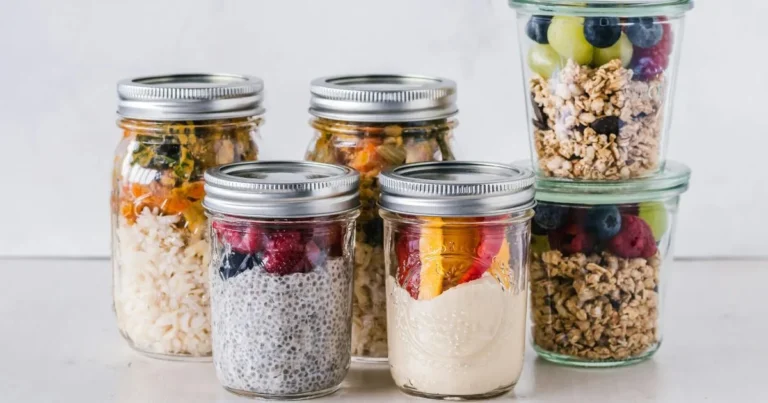7 Essential Types of Nutrition and Their Benefits
Introduction: Why Proper Nutrition is the Key to a Healthy Life
Imagine waking up every morning feeling refreshed, full of energy, and ready to take on the day. What if the secret to a stronger immune system, better mental clarity, and overall well-being was right on your plate? The food you eat plays a fundamental role in how your body functions, and understanding the seven essential types of nutrition can help you make better dietary choices for a healthier life.
Nutrition isn’t just about eating; it’s about fueling your body with the right components to maintain energy, repair cells, and prevent diseases. In this article, you’ll discover the seven fundamental types of nutrients your body needs and how they contribute to optimal health.
Table of Contents
Understanding the 7 Essential Types of Nutrition
1. Carbohydrates – The Body’s Primary Energy Source
Carbohydrates are often misunderstood. While some believe they contribute to weight gain, the truth is that they are the body’s primary energy source. Without carbohydrates, your body would struggle to function properly.
- Sources: Whole grains, fruits, vegetables, legumes, and dairy products.
- Benefits: Provides energy, supports brain function, and aids digestion.
- Types of Carbohydrates:
- Simple Carbs: Found in sugary snacks and processed foods, these provide quick energy but can lead to spikes in blood sugar.
- Complex Carbs: Found in whole grains and vegetables, these provide sustained energy and are rich in fiber.
2. Proteins – Building Blocks of Life
Protein is essential for growth, muscle repair, and overall body maintenance. Every cell in your body contains protein, making it a critical nutrient for survival.
- Sources: Lean meats, fish, eggs, dairy, nuts, legumes, and soy products.
- Benefits: Supports muscle growth, strengthens immunity, and aids in hormone production.
- Types of Proteins:
- Complete Proteins: Contain all nine essential amino acids (e.g., meat, fish, eggs).
- Incomplete Proteins: Lacking some essential amino acids (e.g., plant-based proteins like beans and nuts).
3. Fats – Essential for Brain and Heart Health
Despite their bad reputation, fats are crucial for brain function, hormone production, and cell growth. The key is consuming the right type of fats.
- Sources: Avocados, nuts, seeds, olive oil, and fatty fish like salmon.
- Benefits: Supports brain health, improves heart function, and aids in the absorption of fat-soluble vitamins.
- Types of Fats:
- Healthy Fats (Unsaturated): Found in olive oil, nuts, and fish.
- Unhealthy Fats (Saturated and Trans Fats): Found in fried foods, processed snacks, and fast food.
4. Vitamins – Boosting Immunity and Overall Health
Vitamins are organic compounds your body needs in small amounts for various bodily functions. They help maintain energy levels, immunity, and skin health.
- Sources: Fruits, vegetables, dairy products, and fortified foods.
- Benefits: Supports immune function, skin health, and proper organ function.
- Types of Vitamins:
- Water-Soluble (Vitamin C, B-complex): Easily absorbed but not stored in the body.
- Fat-Soluble (Vitamins A, D, E, K): Stored in fat tissues and the liver.
5. Minerals – Strengthening Bones and Body Functions
Minerals are essential for various bodily functions, including bone strength, nerve function, and muscle contraction.
- Sources: Leafy greens, dairy, nuts, and seafood.
- Benefits: Strengthens bones, supports muscle function, and aids in oxygen transport.
- Key Minerals:
- Calcium: Essential for strong bones and teeth.
- Iron: Helps in oxygen transport via red blood cells.
- Magnesium: Supports nerve and muscle function.
- Zinc: Aids in immunity and wound healing.
6. Water – The Most Important Nutrient for Survival
Water makes up about 60% of your body and plays a critical role in almost every bodily function.
- Sources: Water, fruits, vegetables, soups, and herbal teas.
- Benefits: Aids digestion, regulates body temperature, and flushes out toxins.
- Daily Intake Recommendation:
- Men: About 3.7 liters (125 ounces) per day.
- Women: About 2.7 liters (91 ounces) per day.
7. Fiber – Supporting Digestion and Gut Health
Fiber is a type of carbohydrate that your body cannot digest, but it is essential for maintaining digestive health.
- Sources: Whole grains, legumes, fruits, and vegetables.
- Benefits: Promotes digestion, controls blood sugar levels, and aids in weight management.
- Types of Fiber:
- Soluble Fiber: Dissolves in water and helps lower cholesterol (e.g., oats, apples, beans).
- Insoluble Fiber: Adds bulk to stool and prevents constipation (e.g., whole grains, nuts, vegetables).
How to Incorporate These Nutrients into Your Daily Diet
Achieving a balanced diet doesn’t have to be complicated. Here are some practical tips to ensure you’re getting all seven essential nutrients:
- Plan Your Meals: Incorporate a variety of nutrient-dense foods in your daily meals.
- Eat More Whole Foods: Choose fresh fruits, vegetables, whole grains, and lean proteins over processed foods.
- Stay Hydrated: Carry a water bottle to remind yourself to drink water throughout the day.
- Practice Portion Control: Overeating even healthy foods can be detrimental.
- Read Nutrition Labels: Understanding food labels helps in making informed choices.
Conclusion – Nourish Your Body for a Healthier Future
Your health is a direct reflection of what you put into your body. By incorporating these seven essential nutrients into your daily diet, you’ll set yourself up for long-term wellness, increased energy, and disease prevention. It’s never too late to start making better food choices—small changes today can lead to significant health benefits tomorrow.
So, what’s stopping you? Begin your journey towards better health today by making smarter dietary choices and prioritizing your nutrition.
FAQ – Common Questions About Types of Nutrition
What is the most important type of nutrition?
While all nutrients are essential, water is the most critical for survival as it supports every bodily function.
Can you get all essential nutrients from a single diet?
A well-balanced diet incorporating a variety of foods is the best way to ensure you get all essential nutrients.
What happens if you don’t get enough of a certain nutrient?
Nutrient deficiencies can lead to health problems such as weakened immunity, fatigue, poor bone health, and cognitive decline.
How can I improve my nutrition without drastically changing my diet?
Start small—add more whole foods, drink more water, and cut down on processed foods. Even minor changes can make a big difference over time.
By understanding the importance of each nutrient and making mindful choices, you can take control of your health and live a vibrant, fulfilling life.




